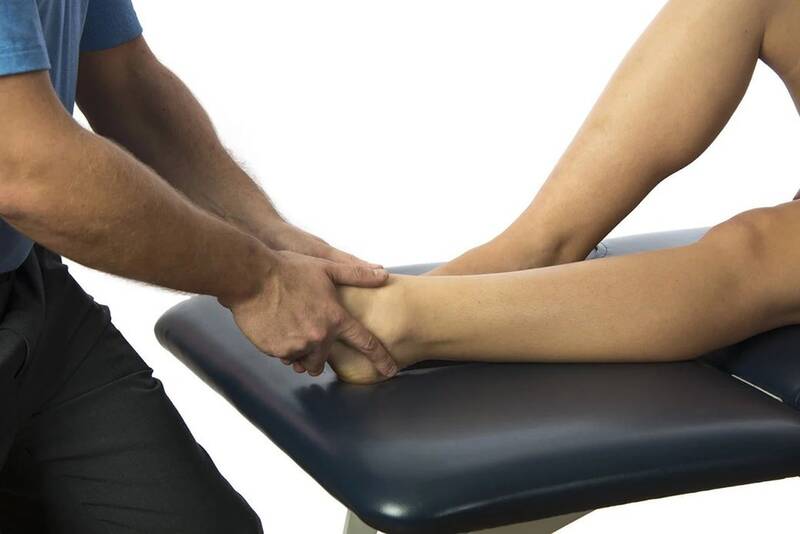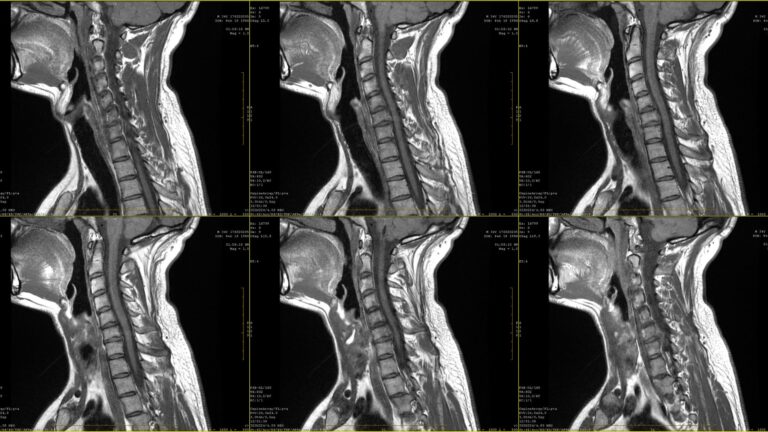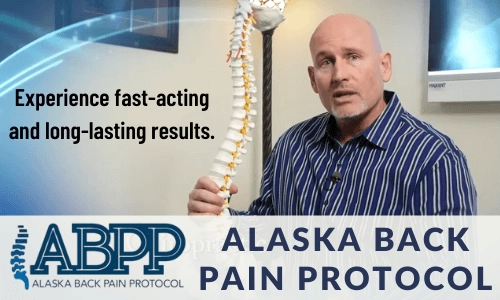Are you suffering with the pain of a pinched nerve? While these can occur almost anywhere in the body, the usually occur in the spine, the neck, elbows, and the wrist.
If you are asking yourself “What can I do for a pinched nerve?” we have answers for you.
Pinched nerves happen when too much pressure is placed on the nerve by surrounding tissues, which include the tendons, muscles, bones, or cartilage. This unnatural pressure interferes with the nerves function and can cause tingling, numbness, weakness, and pain.
Common Symptoms
Most people describe the symptoms of a pinched nerve as:
- A tingling sensation
- Numbness, like the area has “fallen asleep”
- Weakness
- A burning sensation
- Pain, sometimes intense
- A radiating pain that moves down the length of a limb, such as down the back of the leg
These feelings can be worse with certain positions, such as when lying in bed or they can happen at certain times, such as using your cell phone or first thing when you get out of bed.
Why Is This Happening to Me?
There are numerous things that can cause a pinched nerve, including:
- Injury
- Repetitive Work
- Arthritis
- Sports
- Some Hobbies
- Obesity
In some cases, pinched nerves occur from a bulging or herniated disc, or a bony growth which touches the nerve.
Could This be Something Else?
Yes, it could. While many people think that almost any type of low back pain is due to a pinched nerve, the truth is that back and neck pain can have a variety of causes. Therefore, a proper diagnosis is so important.
For neck pain, a pinched nerve is not very common. Neck pain can be due to a small tear in the tissue which is connected to a tendon, muscle or other connective tissue which is also connected to a nerve. This sends a pain signal to the brain. Again, a proper diagnosis is important here, which is why you should see a chiropractor right away.
Pinched Nerve-Doctor or Chiropractor?
While both a GP and a chiropractor can diagnose a pinched nerve, your GP will most likely send you to an orthopedist, a physical therapist, a chiropractor, or just give you a script for pain meds and send you home.
Why waste you time with all this? Your chiropractor can do x-rays and determine where the pinched nerve is and what the root cause is, then make up a treatment plant and begin your treatment all in one visit!
Best Tools for Dealing with a Pinched Nerve
The pain of a pinched nerve is usually so intense that most people can’t ignore it for very long. There are some people, however, who simply rely on pain med’s and hope that the problem will go away on its own. It usually doesn’t.
There is a list of things that you should never do if you have a pinched nerve (you can read about those here) but today we want to talk about the tools you can use to help stop the pain and allow the body to heal itself.
Tool #1-Chiropractic Massage

A massage from a day spa is a nice treat anytime, but a chiropractic massage combines the comfort of massage with the healing techniques of a chiropractor.
Chiropractic massage differs from your local spa massage in that it is done under the direction of the chiropractor. In the case of a pinched nerve, the doctor can direct the massage therapist to avoid certain areas or to concentrate on other areas where the massage will promote the most healing.
Also, there are a multitude of different massage techniques, not all of which are suitable for those with a pinched nerve. Your chiropractor will instruct the therapist what type of massage you should receive for maximum healing potential.
How bad is your pain?
Take our QUIZZES below and find out!
Tool #2-Chiropractic Care
Chiropractic care is extremely helpful when it comes to treating pinched nerves, regardless of where they are located. As specialists in the musculoskeletal aspect of the body, chiropractors can determine what the root cause of your pinched nerve is and how to relieve the pressure that is causing the nerve pain. The relaxation of the muscles and repositioning of the joints will reduce pressure on the affected nerve.
Your chiropractor might also employ other modalities to relieve pressure, pain, and encourage healing including:
- Spinal decompression
- Ultrasound
- Low-Level Laser Light Therapy
- Heat Therapy
- Physical Rehabilitation
Your chiropractor will do a complete exam, take a full medical history, diagnose the root problem, and then create a treatment plan specialized for you. If they should find a misaligned vertebra in the spine, known as subluxations, your chiropractor will remove these misalignments through adjustments.
When the spine is aligned, the nerves can function properly without pain or blocked signals. Adjustments will also allow for improved blood circulation, which brings oxygen and nutrients to damaged areas, so they can heal.

Can a chiropractor help with a pinched nerve in the low back? You bet they can! Whether it’s a pinched nerve in the shoulder, a pinched nerve in the neck, or anywhere in your back, a chiropractor is specially trained to deal with these problem areas.
Tool #3-Ice/Heat Packs
Don’t discount the pain relief and healing properties of good old-fashioned heat and ice packs. Alternating between ice and heat packs will reduce swelling and inflammation, in addition to bringing pain relief.
Heat packs will bring fresh blood to the area, which is vital for healing as it takes away old damaged tissue and bring fresh nutrients to the affected part of the body, so healing can take place.
Place an ice pack over the painful area for 10 minutes on then 10 minutes off. Ice works best when the injury is new. After a day or two, replace ice with heat packs, which can be used for an hour or two at a time. You can alternate between heat and ice if you like.
Tool #4-Lifestyle Changes
Depending on the root cause behind the pinched nerve, your chiropractor might suggest you make some lifestyle changes to prevent a reoccurrence. Some possible changes might include:
- Losing weight
- Stretching programs, such as yoga
- Anti-inflammatory supplements
- An Anti-inflammatory diet
- Low-impact exercises, such as swimming or walking
- Wrist or elbow braces
- An ergonomic workstation
- Improved posture
- A change of pillows or mattress
Many people find that getting more rest is also helpful. If you are having difficulty sleeping, speak to your chiropractor about possible solutions for improving your nightly rest. Experts recommend 7-9 hours of sleep each night. Schedule sleep as one of your priorities so your body has time to do the healing that is necessary for a healthy, pain free life.
Tool #5-Anti-Inflammatory Supplements

Inflammation is the body’s natural immune response, but inflammation also means pain. When you control inflammation, you naturally control pain levels.
While there are dozens of supplements that help to control inflammation, some of the top anti-inflammatory supplements your chiropractor might recommend include:
- Alpha-Lipoic Acid- This is a natural fatty acid that your body makes. It functions much like antioxidants, protecting your cells from damage and controlling inflammation.
- Curcumin- Perhaps one of the best known and most researched supplements, curcumin is a part of turmeric, the spice that most of us use in curries. Curcumin has shown impressive results in numerous studies which show that it lowers inflammation levels for those with diabetes, heart disease, cancer, and many more.
- Ginger- Best known for its anti-nausea compounds and sweet taste, ginger is also a terrific anti-inflammatory that has numerous benefits.
- Fish Oil- The omega-3 fatty acids found in fish oil are nothing short of vital for good health. The DHA in fish oil has especially strong anti-inflammatory compounds that are known to improve digestive health as well.
- Magnesium- Magnesium is the fourth largest mineral in the human body and every cell needs it to function. Unfortunately, many Americans are deficient in this important mineral. Low levels of magnesium are linked to chronic inflammation.
Not every supplement is suitable for every person. If you are taking any medications, consult with your chiropractor or pharmacist before making any changes to your medication or before consuming any supplement as there could be interactions.
How Long Will This Take to Heal?
The amount of time it takes to heal a pinched nerve will depend on the circumstances and root cause. Spinal stenosis, for example, will never heal since there is no cure, which means pain can only be controlled.
Most low-back sources of pain, with proper treatment, will heal in 10 days to 2 weeks. If other tissues have been damaged, however, it can take from 4 week to 4 months, sometimes even 6 to 8 months, depending on the extent of the damage and the patient’s cooperation with their recovery efforts.
If you or someone you love is suffering from any type of shoulder, neck, elbow, wrist or back pain, please don’t hesitate to call our clinic for a same day appointment. You could be on the road to recovery, with less pain, today!

Please feel free to share this article on your social media site or with anyone you feel might benefit from the information here.
Schedule an Appointment and Receive
FREE One-Hour Massage Certificate
That’s right! Receive a certificate for a free one-hour massage with our highly-trained and licensed massage therapists for use after your first appointment. Use it yourself, or give it to a friend.
[gravityform id=”8″ title=”false”]



 Lyshom Knee Disability Index
Lyshom Knee Disability Index Neck Disability Index
Neck Disability Index Back Disability Index
Back Disability Index Shoulder Disability Index
Shoulder Disability Index Headache Disability Index
Headache Disability Index





